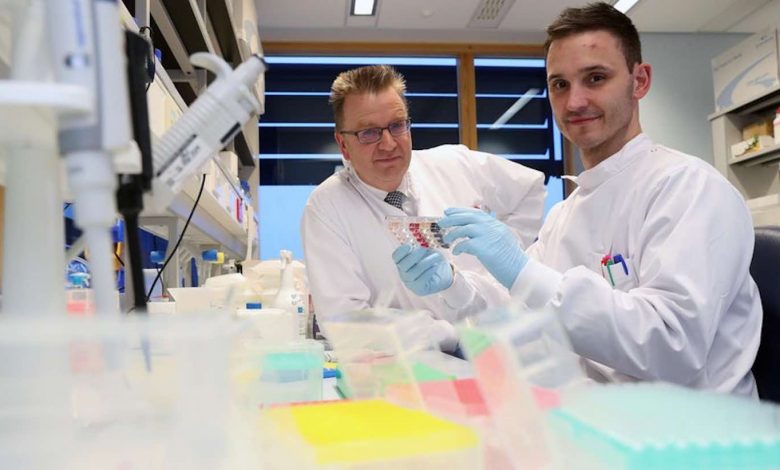Published
5 years agoon
By
Frimpong
The researchers at Cardiff University were analysing blood from a bank in Wales so as to look for immune cells that could fight bacteria. This is when they discovered a new type of immune cell which kills most cancer cells.
This cell, referred to as a new type of T-cell, carries a never-seen-before receptor that acts like a grappling hook that latches on to most human cancer while ignoring cancer cells.
Studies of the new cells have shown that they kill lung, skin, blood, colon, breast, bone, prostate, ovarian, kidney, and cervical cancer.
Lead author of the study, Professor Andrew Sewell, said that it was very unusual to find a cell that had broad cancer-fighting therapy and raised the prospect of a universal therapy.
Our finding raises the prospect of a ‘one-size-fits-all’ cancer treatment, a single type of T-cell that could be capable of destroying many different types of cancers across the population. Previously nobody believed this could be possible
Professor Andrew Sewell,
The professor went on to mention that there could be people, especially in Wales, that could be carriers of these t-cells and are not aware that they are immune to cancer.
Possibly. This immune cell could be quite rare, or it could be that lots of people have this receptor but for some reason it is not activated. We just don’t know yet.
Professor Andrew Sewell
Therapies which engineer immune cells to fight specific types of cancer already exist, but they are currently only useful for some forms of leukaemia and do not work for solid tumours, which account for most cancers.
Other medical professors are now praising this new discovery citing that if the research holds up, it would lay the foundation for universal T-cell medicine and accessibility of immunotherapy.

























